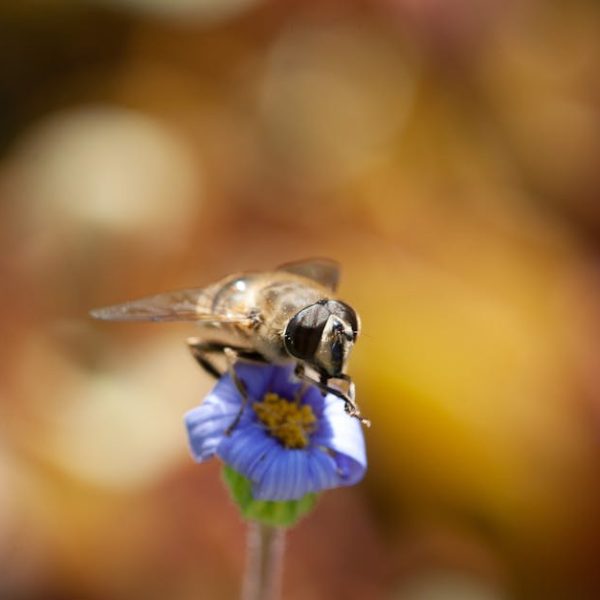When it comes to unwelcome houseguests, mosquitoes surely top the list. These flying pests are not only annoying but also pose a considerable health risk, carrying diseases such as Dengue, Zika, and Malaria. Summertime often sees a spike in mosquito populations, turning what should be pleasant evenings into swatting fests. But there’s good news: various effective strategies can help you control and kill mosquitoes in your home.
Understanding the Mosquito Threat in Residential Spaces
Mosquitoes are drawn indoors by factors such as carbon dioxide exhaled by humans, moisture, warmth, and certain scents. Once inside, they proliferate in areas where they can breed undisturbed. A single mosquito can lay up to 300 eggs at a time, leading to a rapid population explosion. Threats posed by these pests are not limited to their disruptive presence; mosquitoes also carry diseases that can be detrimental to human health.
Various areas in the home are conducive to mosquito breeding:
- Stagnant water: Female mosquitoes lay eggs in standing water. Buckets, blocked gutters, pet bowls, and plant saucers can become breeding grounds.
- Dark, sheltered areas: Mosquitoes seek out areas like these for resting. Cluttered areas, closets, and beneath the furniture are prime spots.
- Heat and humidity: Warm temperatures speed up mosquito breeding cycles, and high humidity levels help their eggs survive.
Perform a regular check of these areas in your home to mitigate the breeding of mosquitoes.
Methods to Prevent Mosquito Breeding in Homes
Chasing mosquitoes with a fly swatter isn’t the most effective solution. Instead, proactive prevention strategies can help keep their population under control:
- Eliminate stagnant water: Make sure water doesn’t accumulate in places around your home. Regularly empty pet water bowls and flower vases, unclog gutters, and keep your bathroom dry.
- Regular cleaning: Maintaining cleanliness in and around your home can prevent mosquito breeding. Regularly clean corners, keep furniture dust-free, and clear cluttered areas.
- Use screen doors and windows: Prevent mosquitoes from entering your home by using screens on doors and windows.
Ecologically friendly prevention methods not only control mosquitoes but also ensure a better environment for you and future generations.
>Pro tips: Coffee grounds, citrus peel, and basil are few common household items that can be used to repel mosquitoes.
Using Natural Methods to Control and Kill Mosquitoes
Natural remedies offer eco-friendly solutions to mosquito issues. Incorporating certain plants such as lavender, lemongrass, and marigold around your home can deter mosquitoes, thanks to their scents. Some effective essential oils include eucalyptus, tea tree, and citronella, which can be used in diffusers or sprayed around your home.
Although these methods require regular use and might not be as powerful as chemical repellents, they are a safe, non-toxic option that doesn’t harm other beneficial insects.
| Natural remedies | Chemical insecticides | |
|---|---|---|
| Pros | Non-toxic, eco-friendly | Powerful, immediate results |
| Cons | Requires regular use, less potent | Can be harmful to humans and environment |
Application of Chemical Mosquito Repellents and Insecticides
Chemical repellents and insecticides can be an effective tool against mosquitoes. They encompass aerosols, coils, fogs and insecticide-infused mats, lanterns, and lamps. It’s important to remember that these methods should be adopted sparingly and with proper safety precautions.
While using these products, make sure to avoid inhalation, direct skin contact, and ingestion. Keep them out of the reach of children and pets. Rabid use may cause health hazards and can also lead to mosquito resistance.
>Pro Tips: Use these products in well-ventilated areas to minimize human exposure, and turn off after use to prevent the buildup of toxic chemicals.
Enhancing the Efficacy of Mosquito Control with Technological Solutions
The advancements in technology have paved the way for high-tech solutions for mosquito control. Bug zappers, trappers, and ultrasonic devices are some of the modern tools to ward off these pests.
Bug zappers attract mosquitoes through ultraviolet light and electrocute them. Ultrasonic devices emit sound frequencies that are said to repel mosquitoes. Larvicidal traps attract female mosquitoes and kill their larvae. However, despite the technological allure, their effectiveness varies, and some may even pose consequences to non-target species.
Best Practices while using technological solutions:
- Do ensure the devices are well-maintained and frequently cleaned.
- Don’t rely solely on these methods. They should be used in conjunction with other strategies.
- Do place the devices strategically for optimal effectiveness.
The fight against mosquitoes may seem persistent, but with the right combination of strategies, it’s winnable. Remember, preventing mosquito breeding and using a combination of natural, chemical, and technological solutions can effectively control and reduce mosquito populations indoors, ensuring the comfort and wellbeing of your household. Be vigilant and proactive in your approach for a mosquito-free home.
Key Takeaway:
- Understanding the mosquito threat in homes and factors contributing to their breeding can help you devise effective control strategies.
- Proactive prevention methods such as elimination of stagnant water and regular cleaning can help keep the mosquito population under control.
- Using natural methods such as plants and essential oils offer eco-friendly ways to deter mosquitoes, besides chemical methods.
- Advances in technology provide additional tools for mosquito control, such as bug zappers and ultrasonic devices but their effectiveness can vary.
Always remember that the battle against mosquitoes involves both prevention and action. Being informed about their breeding habits and employing a comprehensive approach utilizing natural, chemical, and technological solutions will ensure the comfort and safety of your household. Occasional mosquito visits are possible, but with vigilance and proactive steps, these intrusions can be minimized to ensure a pleasant living environment.
FAQs
Q: What attracts mosquitoes to my home?
A: Mosquitoes are attracted to carbon dioxide, warmth, moisture, and certain scents. Stagnant water, dark corners and warm, humid conditions can make your home an appealing breeding ground for them.
Q: Can everyday household items help prevent mosquito breeding?
A: Yes, using coffee grounds, citrus peel and basil can help deter mosquitoes. These items produce scents that are unappealing to mosquitoes.
Q: Are there any eco-friendly ways to control mosquitoes indoors?
A: Yes, utilizing certain plants such as lavender, lemongrass, and marigold around your home can naturally deter mosquitoes. Moreover, essential oils like eucalyptus, tea tree, and citronella can also help control them.
Q: Are chemical mosquito repellents safe for home use?
A: While chemical repellents can be effective, they should be used sparingly and with proper safety precautions to minimize potential health hazards.
Q: How effective are technological solutions in controlling mosquitoes?
A: Technological tools like bug zappers, trappers, and ultrasonic devices can be effective in controlling mosquitoes. However, their effectiveness can vary and they should be used in conjunction with other strategies like cleanliness maintenance and breeding source elimination.
Feel free to explore more posts on our website, and share this article if you find it helpful. Your safety and comfort are our priority. Together, we can ensure a mosquito-free home.






